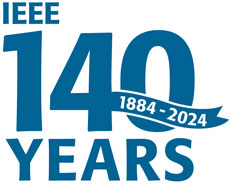
2024
IEEE RICHARD W. HAMMING MEDAL
Sponsored by Qualcomm, Inc.
For contributions to the theory of error-correcting codes and their applications in distributed storage, non-volatile memory, and digital fingerprinting
Alexander Barg is a preeminent coding theorist. His contributions to the field as well as to numerous application areas of coding have made him a dominant influence across wide areas of information technology, data transmission, and storage. Barg’s earlier work includes fundamental contributions in the use of error-correcting codes for digital fingerprinting and traitor tracing, where he established combinatorial and information-theoretic bounds and gave novel constructions of schemes approaching these bounds. He has also derived new bounds on the error probability of decoding in classic models of communication channels, sharpening some of Shannon’s early results in this problem. More recently, his work has focused on algebraic code constructions for various models of distributed storage, private distribution estimation, polar codes, and a variety of other problems. What sets him apart from being a simply outstanding coding researcher is the breadth and depth of his work across a broad spectrum of information technology. His groundbreaking work has resulted in fresh and exciting insights, setting new directions, and achieving important results in several areas of application. One of his standout contributions, together with Itzhak Tamo, is the construction and implementation of locally repairable codes (LRCs). These are codes for which the erasure of a coordinate position can be recovered by access to a fixed number of other coordinate positions. The codes have found wide applications in data storage, transmission, and recovery problems. Barg’s subsequent extension of this work, utilizing tools from algebraic geometry, has sparked significant interest and follow-up research within both engineering and mathematics communities.
An IEEE Fellow, Barg is a professor with the Institute for Systems Research and Department of Electrical and Computer Engineering, University of Maryland, College Park, MD, USA.


